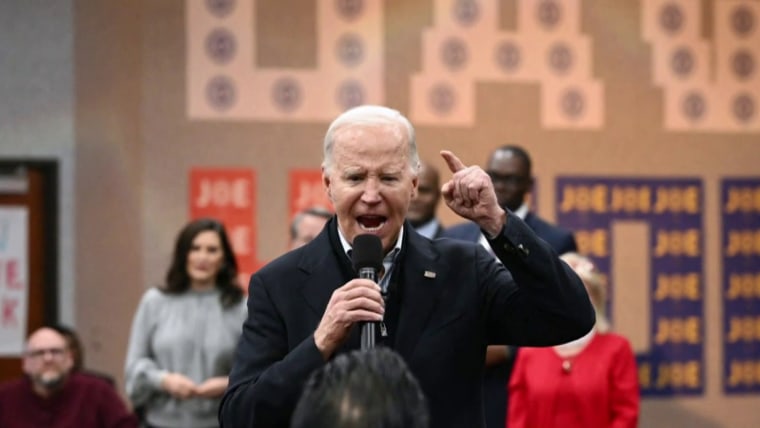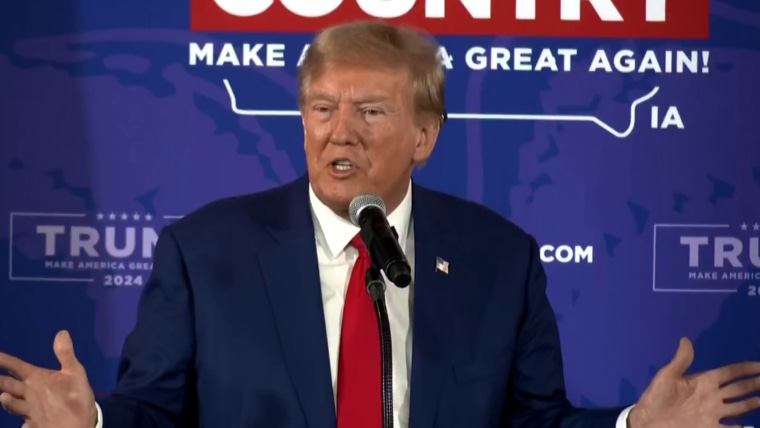Presidential primaries are not usually this predictable. But there have been few surprises on either the Democratic or Republican sides heading into Super Tuesday, which will likely end with Donald Trump and Joe Biden moving closer to their parties' nominations.
But that doesn't mean that the primaries didn't matter.
In fact, there have been five moments over the last two months that may prove to be decisive in terms of how the November election turns out.
Here's a closer look at those revealing days.
Jan. 23: Trump shows weakness
The New Hampshire Republican primary revealed Trump’s biggest vulnerability coming out of primary season — his inability to garner a commanding majority of Republican votes in key contests. As a former president, Trump is the de facto Republican incumbent. To lose more than 40% of the vote, as he did to Haley in both New Hampshire and South Carolina — or even 27% in Michigan — shows real weakness. To be fair, some number of those Haley voters are independents or possibly even Democrats crossing over to weaken Trump. Still, a vote against Trump is a vote against Trump, no matter the voter’s party affiliation, and that spells trouble for the former president in the fall.
Jan. 23: Anti-Biden efforts falter
If there was any energy in the party to try and replace Biden as the nominee, it should have shown itself in New Hampshire.
For Biden, the New Hampshire Democratic primary showed that — despite lots of polling showing that Democrats are unhappy with Biden as the nominee — there is no meaningful anti-Biden movement in the party. Biden’s name was not on the New Hampshire ballot and his main Democratic opponent, Dean Phillips, spent close to $3 million trying to rally New Hampshire voters who were mortally offended that the president killed the state's “first in the nation” primary status. If there was any energy in the party to try and replace Biden as the nominee, it should have shown itself in New Hampshire with a big vote for Dean Phillips. Instead, Biden won 65% of the vote as a write-in candidate. This win was also an impressive showing for the Biden-Harris campaign’s ground game. Getting New Hampshire voters — who spent the last two years being furious at Biden — to write your name on a ballot is not an easy endeavor to pull off, but the president’s campaign did it.

Feb. 8: A rough spot for Biden
Special counsel Robert Hur’s report concluded that Biden had not broken the law in his mishandling of classified documents while making dramatic and inappropriate claims about the president’s age. It sparked a five-alarm freakout among Democrats and prompted a round of stories and essays suggesting that Biden should be replaced as the Democratic nominee. It was a rough week for the White House, but going through this crucible forced the broader anti-Trump political ecosystem (including yours truly) to come to terms with the president’s relative vulnerabilities and strengths as a candidate and come out on the other side embracing him, particularly as an alternative to Trump. Better to go through this reckoning in February than in the fall.
Feb. 16: Alabama targets IVF
Republicans are now trying to backpedal and show support for IVF protection, but the Alabama decision revealed a fundamental truth.
I believe that Biden will win in November and, when he does, we will look back at the Alabama Supreme Court’s ruling that embryos are children as the most consequential development of the primary season. Abortion, including Trump’s reported support for a national abortion ban and his love for taking credit for the overturning of Roe v Wade, was always going to be a motivating issue for Democrats. But for the Alabama court to rule, as Vice President Kamala Harris described it, that women don’t have “the right to end an unwanted pregnancy or….start a family” was like throwing gasoline on an already raging dumpster fire. Republicans are now trying to backpedal and show support for IVF protection, but the Alabama decision revealed a fundamental truth — overturning Roe v Wade has left women’s rights to the whims of extremist judges and politicians and Republicans will pay a heavy price for that in presidential, gubernatorial and congressional elections.
Feb. 28: The Supreme Court opts for delay
With its decision to delay Trump’s immunity appeal until late April, the Supreme Court made clear what I have always believed — it will be up to voters and not the courts to hold Trump accountable. While it is gravely disappointing that the Supreme Court did not act expeditiously on this critical question, the decision represents a breakthrough for the Biden campaign as it continues to battle doubts about the president’s age and and Trump critics continue to hope for an outside event that will remove him as a threat to democracy. We can now end the primary season with more clarity on how this will play out. There’s only one way to stop Trump: vote for Biden.

